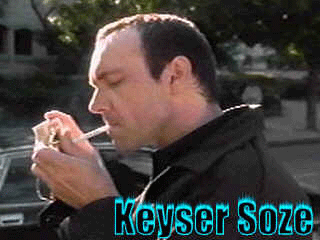
Posted on 06/06/2005 7:26:04 AM PDT by Mr. Silverback
Note: This commentary was delivered by Prison Fellowship President Mark Earley.
When the New York Times is willing to consider the possibility that evil exists, you have to wonder what’s really going on.
Joking aside, the Times ran an intriguing article, titled, “For the Worst of Us, the Diagnosis May Be ‘Evil.’” It gives valuable insight into a secularized culture grappling with the question of what makes people do bad things.
Author Benedict Carey writes, “Most psychiatrists . . . avoid the word evil, contending that its use would precipitate a dangerous slide from clinical to moral judgment that could put people on death row unnecessarily and obscure the understanding of violent criminals. Still,” he writes, “many career forensic examiners say their work forces them to reflect on the concept of evil, and some acknowledge they can find no other term for certain individuals they have evaluated.”
These psychiatrists are dealing with people who commit acts of almost unbelievable savagery. It seems that the more of these criminals they encounter, the less prepared they are to account for this kind of behavior. It’s making some psychiatrists rethink a lot of their ideas.
At Prison Fellowship, we know. For more than thirty years we have labored in the prisons of America, and we have seen evil face-to-face—and redemption, too.
Carey explains, “A group at New York University has been developing what it calls a depravity scale, which rates the horror of an act by the sum of its grim details. And a prominent personality expert at Columbia University has published a 22-level hierarchy of evil behavior. . . . He is now working on a book urging the profession not to shrink from thinking in terms of evil when appraising certain offenders, even if the E-word cannot be used as part of an official examination or diagnosis.”
For the Christian, all this talk of evil feels just a little like going back to kindergarten. Evil is a concept so central to the Biblical worldview—a worldview that teaches us that the germs of evil can be found, not only in serial killers, but also inside every human heart. You’d think that would be common sense.
So why are psychiatrists just now beginning to face up to this—the existence of evil? Well, the idea of a “therapeutic culture,” as some call it, is a tempting one. If bad behavior is just an aberration that can be cured through medical or psychiatric treatment, it keeps us from having to deal with the uncomfortable idea that every person is capable of such behavior. It also reinforces the belief that this world is all there is, a belief that many scientists prefer. As forensic psychiatrist Dr. Park Dietz put it, “I think the main reason it’s better to avoid the term evil, at least in the courtroom, is that for many it evokes a personalized Satan, the idea that there is supernatural causation for misconduct.” It’s so much more appealing to believe that all misconduct can be explained in scientific terms.
The problem, of course, is, once you start exploring what human beings are capable of, that belief just doesn’t hold water anymore. And the belief in evil suddenly doesn’t look so silly or childish. It starts to look as if the Biblical explanation may have been the right one after all.
BreakPoint/Chuck Colson Ping!
If anyone wants on or off my Chuck Colson/BreakPoint Ping List, please notify me here or by freepmail.
BreakPoint/Chuck Colson Ping!
If anyone wants on or off my Chuck Colson/BreakPoint Ping List, please notify me here or by freepmail.
Oh, well, that depends on how you define evil. For those who see evil from a religious perspective, it always carries with it the possibility of redemption. Especially if evil is defined as operating under the supernatural influence of Satan. Remove Satan's influence, and voilà.
Me, I define an evil human as one so twisted in its nature it can never be fixed and must be killed or confined forever.
I should think many criminals would positively adore being considered evil in the religious sense, as so many jailhouse conversions attest.
As G.K. Chesterton pointed out, the doctrine of Original Sin is the only orthodox Christian doctrine susceptible of empirical proof.

In other words, we've defined deviancy down so much that evil has been defined up as far as it can go.
The lawyers found a psychiatrist who was willing to testify hhe was insane and had religious delusions, even though his only "delusion" was that it was wrong for a Christian to lie to save his bacon from justice. I'm not sure how the case turned out, because George W. Bush wasn't in a position to save his life and therefore there wasn't much media coverage.
We know evil when we see it, but defining evil would apparently be very difficult. Opposite of good? Defining good is apparently very difficult.
 ....The greatest trick the devil ever pulled was convincing the world he doesn't exist
....The greatest trick the devil ever pulled was convincing the world he doesn't exist
I highly recommend an excellent book on this subject, THE PEOPLE OF THE LIE by M. Scott Peck.
Interesting you should bring Peck up. I'm reading a book called "The Five Love Languages" by Gary Chapman. He refers to Peck regularly.
Disclaimer: Opinions posted on Free Republic are those of the individual posters and do not necessarily represent the opinion of Free Republic or its management. All materials posted herein are protected by copyright law and the exemption for fair use of copyrighted works.